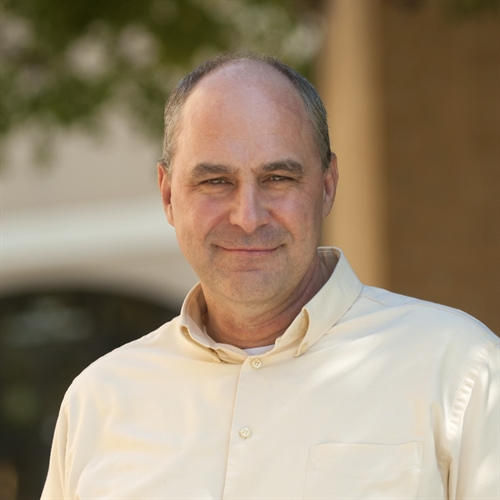A Good Word: צֶדֶק (tsédeq) — Righteous

At the beginning of the 20th century, the landscape of Christianity was rocked by the modernist-fundamentalist controversy. Modernists emphasized following the ethical teaching of Jesus, highlighting the social implications of the gospel, but they no longer accepted the traditionally held theological claims of Jesus. Conversely, fundamentalists, struggling with complex social issues of their day, decided to focus exclusively on the spiritual aspects of the gospel. However, both Modernist and Fundamentalist created a false dichotomy between faith and practice; Scripture rejects this distinction.
For example, the biblical Hebrew term tsédeq (“righteousness”) speaks to both. The term tsédeq does not conceive of righteousness in a purely abstract sense; it describes the practical actions and behaviors that meet the demands God deems acceptable. To be sure, God counted Abraham righteous (tsědāqāh) based on his faith (Gen. 15:6), but God also called him and his descendants to walk in the path of Yahweh by “doing” righteousness (tsědāqāh) (Genesis 18:19). Moses explained that God would count the ancient Israelites righteous (tsědāqāh) if they believed in Yahweh and behaved according to the ethical standards of the Torah (Deuteronomy 6:25). And Moses emphasized that this was not an impossible standard (Deuteronomy 30:11-14). The kind of righteousness God requires is as practical as treating the poor with compassion (Deuteronomy. 24:13; cf. Matthew 25:34-40).
The Hebrew Scriptures emphasize that tsédeq (“righteousness”) should encompass all aspects of our lives, including the moral, ethical, social, and personal spheres. Righteousness must impact how we conduct our financial transactions with others: God required ancient Israelite merchants to use accurate weights and measures when selling and buying commodities such as grain and wheat. Righteousness must impact how those in positions of power treat those who are easily exploited: God required ancient Israelite rulers to promote social justice by protecting the socially vulnerable. Righteousness must impact how those entrusted to make judicial decisions commit themselves to make fair and impartial rulings: God required that ancient Israelite judges not show partiality to the rich over the poor and not favor the native citizen over the resident foreigner; likewise, God required witnesses in a court of law to tell the truth and not commit perjury. Righteousness must impact the Christian life: God calls those who trust in him for salvation to pursue moral and ethical righteousness in the actions of our everyday lives.
Psalm 15 gives poetic voice to the integration of belief and behavior. The psalm, imitating a temple entrance liturgy, opens with a question/answer sequence that the ancient Israelites pondered as they drew near to worship Yahweh on Mount Zion: “O LORD, who may sojourn in Your tent? Who may dwell on Your holy hill? He who walks with integrity, practices righteousness (pō ʿēl tsédeq), and speaks truth in his heart” (vv. 1-2). In effect, David explains that the kind of “guest” God welcomes into his “tent” are those whose lives are marked by ethical righteousness. Isaiah echoed the same sentiment, “No eye has seen any God like You, who intervenes on behalf of those who hope in him; You deliver those who delight in doing righteousness ( ʿēśēh tsédeq)” (Isa. 64:4-5).
Thus, David and Isaiah agree with Abraham and Moses: we must never divorce ethical behavior (orthopraxy) from theological belief (orthodoxy). While the grace of God provides the believer with a standing of positional righteousness, genuine saving faith must also be integrated with ethical righteousness and demonstrate itself in practice of everyday life.
Dr. Gordon Johnston possesses a specialist’s depth and a generalist’s breadth. Known for thorough research and meticulous detail, he delights in helping students see the broad themes that unify the Scriptures. He has degrees in Classical Greek, Biblical Hebrew, and Semitic languages, as well as post-doctoral study in Hittite as visiting research professor at the University of Chicago (2010–11). His research/teaching interests include Wisdom Literature and Biblical Theology. Dr. Johnston has published numerous articles in scholarly journals, contributed to the NET Bible, and co-authored a monograph entitled Jesus the Messiah. Gordon and the love of his life—his wife, Danielle—have been blessed with three dearly loved children.
(1) Leviticus 19:36; Deuteronomy 25:15; Ezekiel 45:10
(2) Isaiah 11:4; 16:5; 32:1; Jeremiah 22:13; Psalms 45:7; 58:1; 89:14; Proverbs 8:15-16; 16:13; 25:5; Ecclesiastes 5:8
(3) Leviticus 19:15; Deuteronomy 1:16; 16:18; Isaiah 1:26; Proverbs 31:9
(4) Isaiah 59:4; Proverbs 12:17
(5) Isaiah 51:1; 64:5; Hosea 10:12; Zephaniah 2:3; Psalms 15:2; 18:20, 24; 23:3; 119:121
About the Contributors

Gordon H. Johnston
Dr. Gordon Johnston possesses a specialist’s depth and generalist’s breadth. Known for thorough research and meticulous detail, he delights in helping students see the broad themes that unify the Scriptures. He has degrees in Classical Greek, Biblical Hebrew, and Hebrew and Semitic languages, as well as post-doctoral study in Hittite as visiting research professor at the University of Chicago (2010–11). His research/teaching interests include Wisdom Literature and Biblical Theology. Dr. Johnston has published numerous articles in scholarly journals, contributed to the NET Bible, and co-authored a monograph entitled Jesus the Messiah. Gordon and the love of his life—his wife, Danielle—have been blessed with three dearly loved children.
